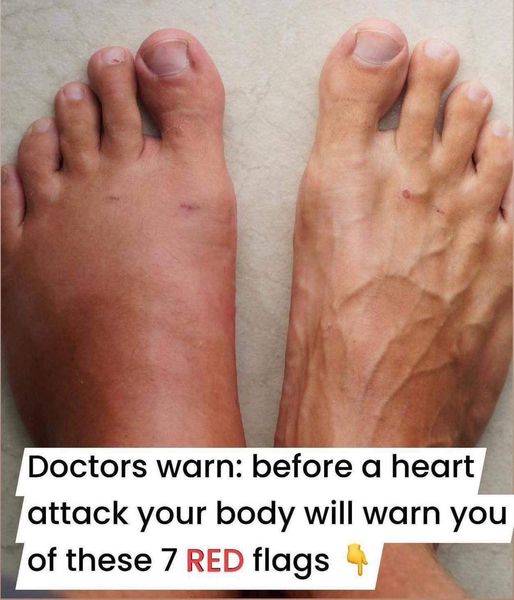In today’s fast-paced world, many individuals find themselves caught in a whirlwind of responsibilities and commitments. This relentless pace can lead to heightened stress levels, which may subsequently result in serious health complications. A significant contributor to this issue is the prevalence of fast food in American diets, which adversely impacts overall well-being. Consequently, numerous Americans grapple with weight management challenges, with obesity emerging as a critical public health concern.
A major consequence of these lifestyle factors is heart disease, particularly heart attacks. Alarmingly, heart attacks rank as the leading cause of mortality in the United States.
Research indicates that our bodies often send out warning signals prior to an impending heart attack. Recognizing these signs can be crucial for timely intervention and treatment.
1. Excessive Fatigue
Experiencing profound tiredness or a lack of energy for even minor tasks could indicate excessive fatigue. This condition may arise from reduced blood flow to the heart due to narrowed arteries—a common issue among those with cardiovascular problems.

2. Breathing Difficulties
If you or someone around you experiences difficulty breathing—often described as shortness of breath—it’s essential to seek medical advice promptly; this symptom could signal an impending heart attack due to inadequate oxygen supply reaching vital organs.
3. Unexplained Weakness
A sudden onset of weakness without any clear reason might be your body’s way of signaling that it’s time for a lifestyle reevaluation and some much-needed rest.
4. Dizziness and Sweating Episodes
Dizziness accompanied by cold sweats can indicate poor blood circulation—an alarming sign that should not be overlooked.
5. Flu-like Symptoms
Many individuals who have suffered from a heart attack report experiencing flu-like symptoms days before their event occurred; being aware of these signs can aid in early detection and prevention efforts.
6. Chest Discomfort
A prevalent indicator associated with heart attacks is chest discomfort or pressure that intensifies over time until it culminates in an actual event.

7 . Edema In Lower Extremities
Congestive heart failure may lead one or both lower chambers of your heart to struggle with effective blood pumping . Consequently , fluid retention occurs , resulting in swelling (edema) within your legs , ankles , or feet .
For further insights into recognizing potential symptoms related to cardiac events , watch Dr.Travis Stork discuss them below
Additionally , check out another informative video demonstrating self-aid techniques for addressing coughs related specifically towards potential cardiac issues :
Please consider sharing this article across social media platforms like Facebook! These resources could potentially save lives by raising awareness about critical warning signs associated with cardiovascular health issues .

Leave a Reply